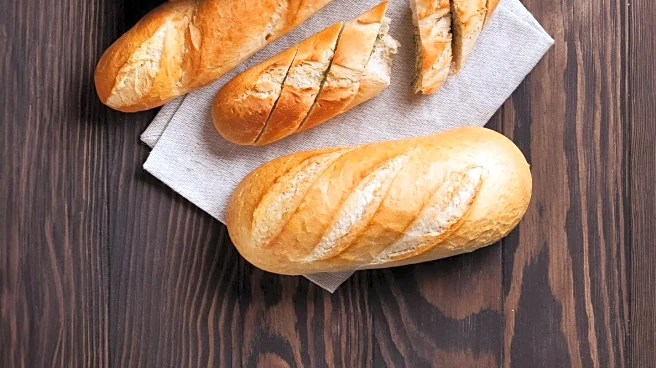What's Happening?
French bakeries are experiencing a shift in consumer preferences, with a decline in traditional baguette consumption and a rise in demand for specialty breads. Despite the baguette's UNESCO heritage status, bread consumption in France has decreased significantly
since World War II. Younger generations are opting for fast food and processed sliced white bread, leading to fewer daily baguette purchases. Neobakeries are emerging, focusing on organic, long-fermented sourdough loaves, which are perceived as healthier and more sustainable. Some bakeries have stopped selling baguettes altogether, favoring larger, traditional loaves that last longer and reduce food waste.
Why It's Important?
The decline in baguette consumption reflects broader changes in eating habits and cultural shifts in France. As younger generations move away from traditional bread, bakeries are adapting by offering more diverse and health-conscious options. This trend could impact the French bakery industry, traditionally centered around baguettes, and influence global perceptions of French culinary culture. The rise of neobakeries highlights a growing consumer interest in sustainability and health, potentially driving innovation in breadmaking techniques and ingredients.
What's Next?
French bakeries may continue to innovate and diversify their offerings to meet changing consumer demands. The industry could see further growth in specialty breads, with bakeries experimenting with ancient grains and organic ingredients. As consumer preferences evolve, bakeries might focus on educating customers about the benefits of these new bread options. The shift could also lead to increased competition among bakeries, as they strive to balance tradition with modern trends.
Beyond the Headlines
The shift away from baguettes raises questions about cultural identity and tradition in France. As bakeries adapt to modern preferences, they must navigate the balance between preserving culinary heritage and embracing innovation. This evolution in bread consumption could influence other aspects of French cuisine, potentially leading to broader changes in dining habits and food production.















